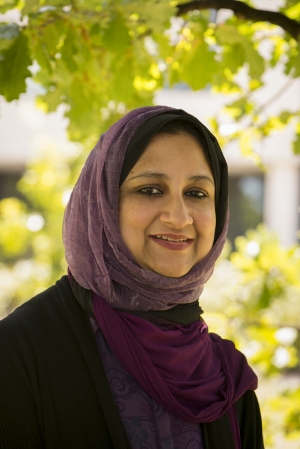Museum builds understanding of Islam
Research news
A team of researchers at Deakin Business School (DBS) has completed a 12-month study into the role of the Islamic Museum of Australia (IMA) in creating a positive image of Australian Muslims and fostering social inclusion.
The team, consisting of project leads and DBS academics Dr Ahmed Ferdous and Dr Fara Azmat, as well as 2015 DBS honours student Emma Winston and Professor Ruth Rentschler (UniSA), launched an interim report on IMA’s role in ‘creating value’ in February.
An important part of the research centred on measuring the effectiveness of the museum’s ‘arts-based initiatives’ (ABI) – a very modern way of looking at how museums, art galleries and other creative endeavours influence the people who work there and their audiences.
Generally speaking, an ABI is primarily an experience-based process using one or more art forms to engage people both rationally and emotionally through active or passive participation.
The research took the form of running several complementary projects, including interviewing stakeholders, analysing the 750 entries in the 110-page visitor book, observing visitors and conducting workshops.
According to Dr Fara Azmat, the whole purpose of value creation at IMA was for people to learn about, and get a better understanding of, Islam.
“The aim of our research was to measure the extent to which the museum created environmental value, social value or economic value. That is, whether there was any later or wider ‘ripple effect’ from the work on reflecting the broader society.
“We found that the social value created was far more important.
“The IMA is helping with the creation of a better understanding of Islam, something that is quite topical at the moment,” she said.
In measuring the museum's ABI impact the research team looked at three groups’ point of view: stakeholders, museum visitors, and ‘non-visitors’ – with both Muslims and non-Muslims included in focus groups and interviews. “One of the reasons this research is very valuable is that even with a room of ten people there was a diversity of opinion,” DBS marketing lecturer Dr Ahmed Ferdous said.
“By speaking to the people who hadn’t visited, it was possible to get a feel for what the researchers called the ‘expectations gap’ between what people thought they might see and experience at the Museum, versus the actual experience of visitors.”
The report from Deakin Business School staff should provide valuable and practical advice to the museum’s management on, for example, how to better communicate the value of the institution, while the research has opened the window for further industry and community engagement.
DFAT has asked to submit an official extended report on the team’s broader study to the Ministerial Advisory Council and there have been follow-up requests from Mr Cheema from Islamic Council of Victoria for further research.
The Deakin Business School research team is once again in discussion with IMA management, and with other funding bodies, looking to continue the project to the next stage – testing for sustained value over time.
Share this story
 Deakin University public policy researcher Dr Fara Azmat.
Deakin University public policy researcher Dr Fara Azmat.
